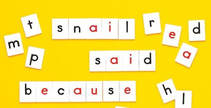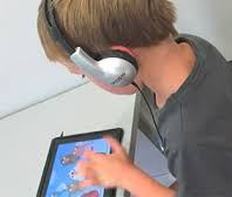Dyslexia & auditory processing disorders
Our speech therapists help kids succeed in school by helping them develop skills needed for great learning in the classroom.
DyslexiaThere are serious short and long‑term effects of dyslexia. Young children with dyslexia gain less pleasure from reading, and so read less. Educational development is often delayed because of the need for reading and writing and spelling skills throughout schooling. Academic failure and a lack of qualifications impacts on the occupational choices and opportunities in adulthood. Things that influence better outcomes
Problems which may cause poorer outcomes:
|
Auditory processing problemsAuditory processing disorder (APD) makes it hard for kids to process auditory information (ie what other people are saying). Symptoms of Auditory Processing Disorder
|


